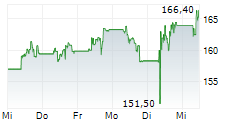LONDON, UK and BUDAPEST, HUNGARY, Oct. 9, 2025 /PRNewswire/ -- Turbine, a leading company specializing in virtualizing biological experiments with AI, today announced a collaboration with AstraZeneca (LSE/STO/Nasdaq: AZN) to test the ability of Turbine's platform to rationalize antibody-drug conjugate (ADC) discovery by predicting response mechanisms, informing ADC positioning, and reducing the need for large-scale cell line screens. This collaboration will apply Turbine's platform, which virtualizes biological experiments at scale, to not only improve the efficiency and speed of ADC discovery but also deliver mechanistic insights that current experimental screening approaches may typically lack.
ADCs are targeted cancer therapies that deliver potent drug payloads directly to tumor cells, but discovery can be slowed by the need to identify effective payloads across diverse tumor types and patient populations through costly, large-scale screening of hundreds of cell lines and patient-derived xenografts (PDXs). Through this collaboration, Turbine and AstraZeneca will address the in vitro challenge by implementing a lab-in-the-loop approach where Turbine's platform recommends a strategically chosen subset of cell lines for testing, then predicts outcomes across thousands of in silico models using AstraZeneca's ADC datasets, including both single-agent and combination studies. This brings discovery closer to outcomes, with the long-term aim of extending the same approach to patient derived models and ultimately clinical care. Beyond reducing experimental burden, the platform also provides mechanistic insights that enhance clinical translatability, modeling not only cell survival but also changes in gene expression, to understand why cells respond or resist treatment.
"By implementing a lab-in-the-loop approach, we can move beyond broad experimental screening toward a more efficient, targeted strategy that selects the ADC combinations most likely to succeed in patients," said Daniel Veres, MD, PhD, CSO and Co-Founder of Turbine. "This also lays the groundwork for deeper integration of our Virtual Lab into discovery workflows, helping ensure that the right experiments are run to generate the greatest impact for patients."
Turbine and AstraZeneca previously collaborated to use Turbine's Simulated Cell platform to identify and understand mechanisms of resistance to therapy in hematological cancers and to predict combination synergy and relevant biomarker candidates involving DNA Damage Repair mechanisms.
About Turbine
Turbine is virtualizing experiments with AI to accelerate discovery and enhance clinical translatability. They've spent the last decade building virtual disease models that they believe can become second only to the patient in predicting drug response. By simulating how cells and tissues behave under treatment, Turbine helps pharma identify the right therapeutic ideas smarter and faster, cutting years of dead-end research and reducing late-stage clinical failure caused by poor efficacy. Scientists can now run billions of virtual experiments to uncover risk, design smarter trials, and scale decisions across entire pipelines. Validated through partnerships with Bayer, MSD, AstraZeneca and others, Turbine's platform has supported nearly 30 research programs. Backed by Accel, MSD Global Health Innovation Fund, Turbine is putting predictive simulations in the hands of every scientist.
For more information, visit?www.turbine.ai?or follow?our LinkedIn page.
Corporate Inquiries:
Luca Bárdió
Turbine
+36 30 675 7099
[email protected]
Media Inquiries:
EvolveMKD
[email protected]
SOURCE Turbine




